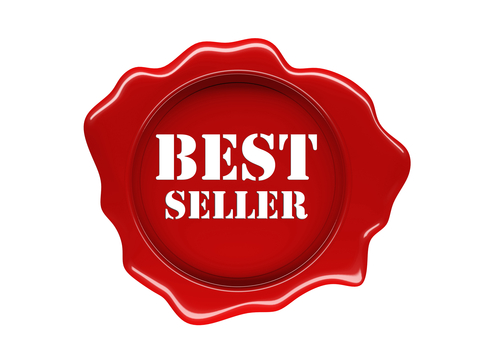Prediction: When Self-Published E-books Will Be Top Dog

The Undeniable Top 10 Digital Publishing Platforms

Who Benefits From Case Studies?
Last week, Digital Book World published the results for the e-book best sellers in the first quarter of 2014. There are a few things interesting about this list to me:
- First, the largest publisher in the world topped all others in appearances. Interestingly, that same publisher has 0 e-books in the No. 1 spot.
- HarperCollins is outpacing every other publisher in No. 1 titles in the e-book market with 10. The two publishers next in line each have 1 title each at the No. 1 spot.
- Amazon moved up to No. 4, from No. 9 for the whole year in 2013. In fact, Amazon’s e-book best sellers are more than half for the first quarter what the total was all year in 2013.
- Hachette, No. 1 in 2013 for number of e-book best sellers, fell to No. 3 on the list in the first quarter of 2014. It’s interesting to note that Penguin Random House sold almost as many books in the second half of 2013 as Hachette did the whole year. The merger between Penguin and Random House in June 2013 clearly affected present and future rankings.
- Finally, self-published e-book titles tied with Simon & Schuster e-book titles for fifth place in the first quarter of 2014. In 2013, self-published titles outpaced Simon & Schuster to secure the fifth spot in number of e-book best sellers (99 for the whole year). You can see the 2013 rankings here.
What are we to make of this?
I think one thing we need to understand is that the big publishers have deep pockets. They have a lot of marketing mojo that gives them an advantage over self-publishers. Nevertheless, more and more self-publishers are learning how to market books online (the Big 6 – Big 5 + Amazon – are getting better at it too, by the way). As more self-publishers get better at marketing their own titles, I can see them moving up the list as a group, but not too far up as long as the big houses keep throwing money into their marketing machines.
Predictions That Could Affect Future
E-book Best Seller Rankings
Digital Book World has published a book of predictions about the e-book business for 2014. There are some interesting prophecies on this list. I’ll tell you which ones I think are most likely to come true. Here are the predictions I find most interesting:
- Barnes & Noble will unload Nook and go private. This is an interesting prediction for a couple of reasons. First, the brick-and-mortar book business is in decline, overall. But not for Barnes & Noble. And it’s the Nook that is dragging B&N down the drain. If it continues to lose money, the company will have to unload the dead weight. The question really is, How? Will Barnes & Noble find a buyer? If so, I don’t think the new owner will make it competitive with Amazon. I don’t see the Nook ever being a major competitor in the e-book market, no matter who owns it.
- Amazon will go physical. This one I’m not so sure about. If it does, it will go physical as a department store or as a showcase store. I don’t think you’ll see every item Amazon has for sale in physical stores any time soon. But it would not be a stretch to see Amazon use physical space to showcase new technologies for the purpose of increasing sales. Otherwise, I don’t see what Amazon would stand to gain by opening brick-and-mortar stores.
- Publishers will invent new revenue streams. I agree. They’ve already figured out that book series are hot sellers. It’s entirely feasible that book publishers will build membership sites and sell access to e-books as package deals or start their own Web-based magazines to showcase writing from authors of the books they publish. They can then put premium content behind a paywall and offer subscribers discounts on books.
- Publishers will adopt a subscription e-book model. I don’t know why they haven’t already. Why not publish e-books with extras the same way that the movie industry now sells movies in DVD format with extras – outtakes, interviews, behind the scenes footage, etc.? Book publishers can package their e-books with author interviews, character sketches, author notes, and other data that are not included in print books. They can easily include this information for a variety of e-books in their catalogs using a subscription model and give top authors a behind-the-wall blog for interacting with their fans. Another thing that is making a comeback is serials. Online serials that serve as standalone stories featuring characters from best selling titles could be a big selling item as a subscription service.
- Publishers will launch magazines around reader interests. This has already started happening. If the Big 5 are going to compete with Amazon, they’ll have to get better at marketing on the Web. They’ll have to be digital publishers, and what better way to do that than to attract a following with a standalone Web magazine?
In many cases, if these predictions hold true, they will definitely affect future best seller lists.
The loss of the Nook in the market would open the door for more Amazon sales. You could see Amazon seriously make a run up the list, possibly up to No. 2, very quickly. Subscription e-book models and Web magazines would both give big publishers greater leverage in the e-book market, especially if they start selling their e-books directly to readers.
So When Will Self-Publishers Be The
E-book Best Sellers Top Dog?
In order for self-publishers as a group to overtake Amazon, Hachette, and Penguin Random House on the e-book front, they’ll have to get better at marketing. Smashwords can be a big help. Personally, I think there should be other distribution models for self-publishers and independent publishers.
Author co-ops could do a lot to catapult self-published authors higher up the list. The indies have to get more creative and leverage their individual successes for the betterment of the whole, something they’re not quite good at.
I hate to say when Hell freezes over, but I think as long as the big publishers are doing well and self-published authors are stuck on the “self,” then it will be a difficult wall to climb. I think we’re looking at a decade at least before top-selling indie authors unite for more market leverage.


